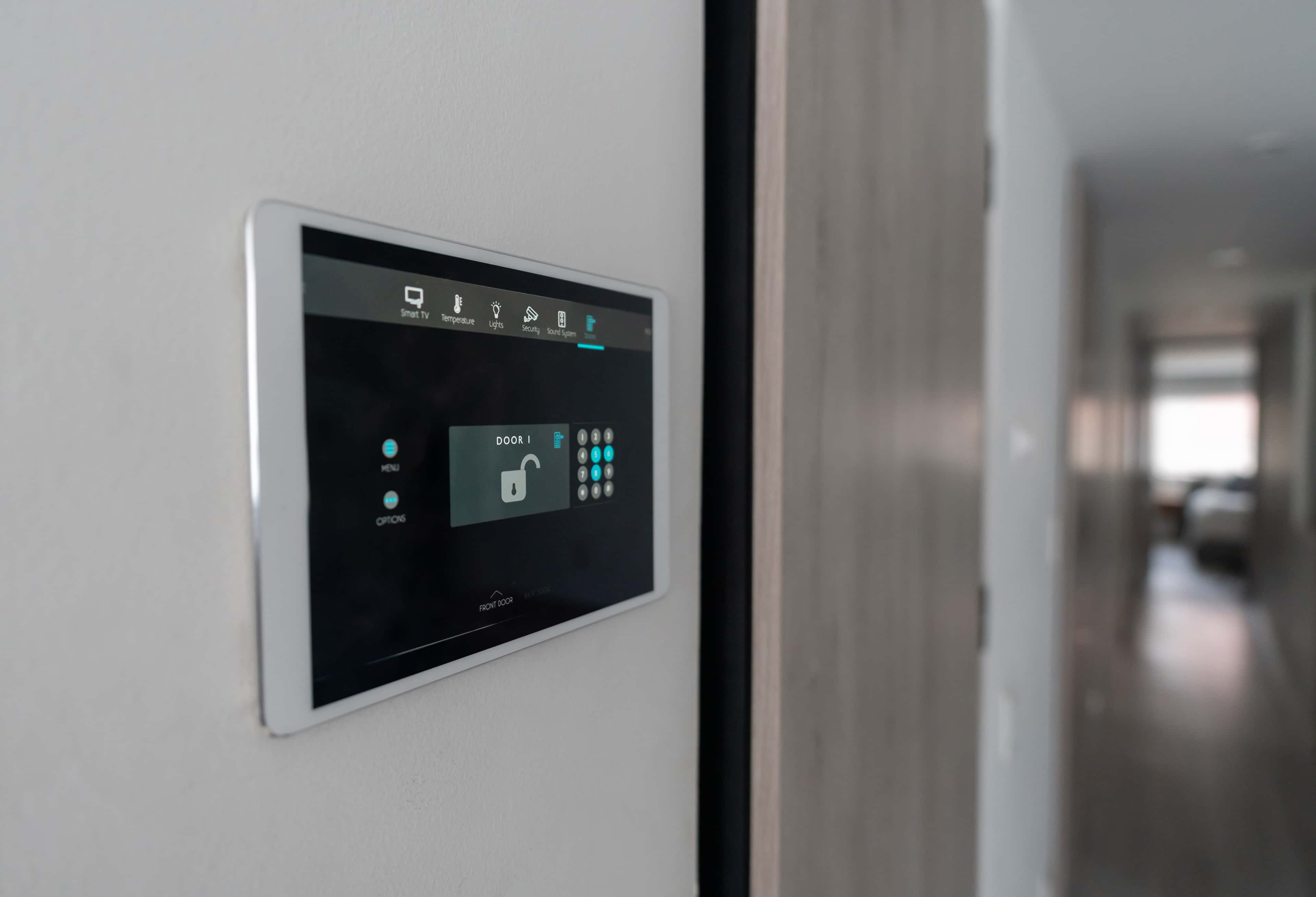In today’s tech-driven world, low voltage systems are everywhere, from security cameras in office buildings to broadband networks in our homes. Behind these systems are skilled professionals known as low voltage technicians.
These electrician technicians specialize in installing, maintaining and repairing systems that operate on 50 volts or less. Those interested in working in this industry can train in Universal Technical Institute’s Electrical, Electronics, & Industrial Technology (EEIT) program.130 Over the course of 12 months, students study a range of topics including low voltage systems.
Keep reading as we explore what low voltage means, break down five core responsibilities of a low voltage technician, look at the industries where they’re most in demand and more.
What is Low Voltage?
Low voltage refers to electrical systems that run at 50 volts or less. Unlike high voltage systems, which power heavy machinery or residential utilities, low voltage systems are used for control, communication and signal transmission.
Common examples of low voltage systems include:
- Fire alarm systems.
- Security and surveillance equipment.
- Cable and satellite TV setups.
- Home automation and entertainment systems.
- Broadband internet networks.
These systems require specialized handling and precision, making low voltage technicians critical in both residential and commercial settings.
UTI’s EEIT program includes course topics that cover a lot of these low voltage systems, including security systems, access control and CCTV systems, fire alarm systems and satellite/cable wireless technology. Learning about these topics can help graduates pursue a range of entry-level roles after graduation and build upon their skills in the field.
5 Key Responsibilities of a Low Voltage Technician
Low voltage technicians handle a wide variety of tasks, but some responsibilities stand out as essential to their daily work. Here are five key areas they focus on:
1. Installing low voltage systems
A low voltage technician is responsible for setting up and wiring new systems, whether it's a CCTV network or an intercom system. This involves interpreting blueprints, running cables through walls or ceilings and connecting components to ensure proper functionality.
2. Performing diagnostics and repairs
When issues arise, low voltage technicians troubleshoot problems using specialized diagnostic tools. They identify faults, replace malfunctioning components and restore service to critical systems.
3. Testing electrical systems
Before finalizing any installation or repair, technicians test systems to verify safety and performance. They use meters and testing devices to check for continuity, voltage levels and proper system response.
4. Tracking and recording all work
Maintaining accurate documentation is key. Low voltage electrician technicians record details of installations, repairs and testing procedures to comply with regulations and assist in future maintenance.
5. Ensuring compliance with local and national electrical codes
Technicians must follow the National Electrical Code (NEC) and any state-specific regulations. This ensures all work is safe, up to standard and legally compliant, especially in sensitive environments like hospitals or schools.
What Type of Jobs Require Low Voltage Technicians?
Low voltage technicians work across a wide variety of industries, installing and maintaining the tech systems we rely on daily. Here are some common job types in this field:
Security systems
From motion sensors to surveillance cameras, these systems rely on skilled technicians to ensure proper installation and functionality in homes and businesses.
Fire alarm systems
In commercial and public buildings, fire alarms must meet strict code requirements. Low voltage technicians are responsible for installing and regularly inspecting these life-saving systems.
Broadband internet systems
Whether setting up fiber optic connections or traditional coaxial cable, low voltage electricians play a vital role in delivering reliable internet services.
Home entertainment systems
Sound systems, home theaters and smart TVs often require a technician to set up components, wire speakers and connect to control systems.
Telecommunications
Phone lines, VoIP systems and data communication networks all require precise low voltage installations to ensure clear, uninterrupted communication.
Fiber optic networks
Working with fiber optics involves high precision. Technicians handle everything from splicing cables to testing transmission speeds and installing termination panels.
Solar panel systems
Though solar panels themselves generate electricity, their control and monitoring systems often operate on low voltage, requiring specialized technicians to install and maintain them.
Start Training for a Low Voltage Technician Career with UTI
If you're ready to jump into a hands-on field that impacts industries across the country, UTI can help you get started.
Our EEIT program offers practical training and industry knowledge you need to pursue a career as an electrician technician that focuses on low voltage systems. Learn from instructors with real-world experience and start building your future.
Enroll now or request more info today.
Universal Technical Institute of Illinois, Inc. is approved by the Division of Private Business and Vocational Schools of the Illinois Board of Higher Education.

